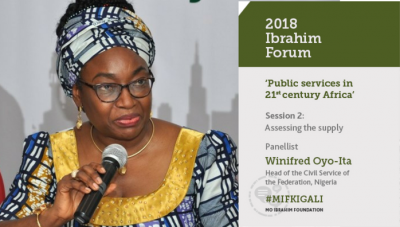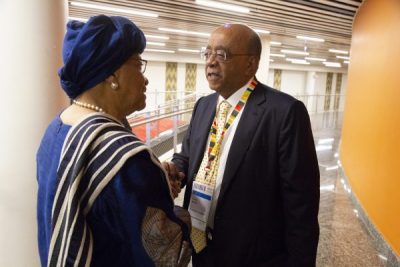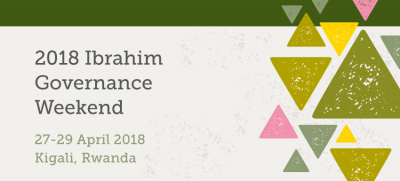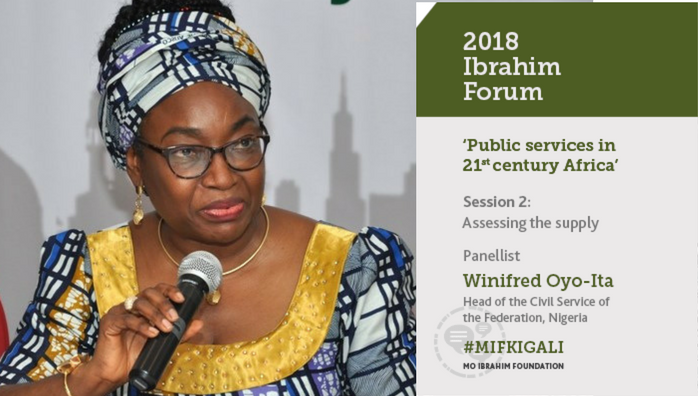The Head of Civil Service of the Federation, Ms. Winifred Oyo-Ita, said that the future of the Service will be anchored on full automation and more human capacity development.
Oyo-Ita, a panelist at the 2018 Mo Ibrahim Forum in Kigali, the Rwandan capital Saturday said that her desire for the Nigerian civil service is to be among the comity of nations operating a 21st century competitive service delivery.
She spoke on “Public Services in 21st Century Africa”, with a focus on “Assessing the Supply”.
The session was aimed at addressing the challenges in building services and capacity in fragile setting, amongst other issues as regards public service delivery.
The session which had public service experts from across Africa and the world, was hosted by Ngaire Woods, Dean, Blavatnik School of Government, Oxford University.

Speaking on what she will do for the Nigerian civil service to make it more attractive, Oyo-Ita said:
“Generally speaking, young people want their impact to be felt and to be appreciated.”
Recall that since her appointment by President Muhammadu Buhari, in January 2016, Oyo-Ita has not hidden her vision for the civil service, which is to develop and institutionalize an Efficient, Productive, Incorruptible and Citizen-Centred (EPIC) culture.
Her office came up with the 2017-2020 Federal Civil Service Strategy and Implementation Plan, to chart a new course for the service and reposition it as an effective machinery of government for improved service delivery.
The strategy, which is in tandem with Pillar Four (4) of the National Strategy for Public Service Reforms (NSPSR), is Nigeria’s first ever home-grown Federal Civil Service reform.
When asked what the pressure was for her to use outsiders in the Nigerian public service, Oyo-Ita said when she was appointed the Head of Service, she made it clear that she was not going to appoint foreign experts to help find solutions to challenges in the Nigerian civil service.
“And for the first time in Nigeria, civil servants where forced to sit down and get to the root of the problem and come out with solutions that they believe would help them,” she said.

“So they immediately had to buy-in in developing the Federal Civil Service Strategy and Implementation Plan and now we are working on that, so this is the first time that we are working on a program that has been developed in-house.
On his part, chairman and founder of the foundation, Mo Ibrahim, advocated for a collaboration with Google for the training of young Africans in the public and private service.
Members of the panel include, Trevor Manuel, Former Finance Minister, South Africa, Fanfan Rwanyindo Kayirangwa, Minister of Public Service and Labour, Rwanda and Soji Solanke, MIF Scholar, Nigeria.
Others are, Betsy Williams, Founder and Board Chairman, President’s Young Professionals Program of Liberia (PYPP), and Mariana Mazzucato, Founder and Director, Institute for Innovation and Public Purpose, University College London (UCL).
The Ibrahim Governance Weekend is the flagship event of the Mo Ibrahim Foundation, held every year in a different African country.

The three-day event convenes prominent African political and business leaders, representatives from civil society, multilateral and regional institutions as well as Africa’s major international partners to debate issues of critical importance to Africa.
HUMAN capital refers to processes that relate to training, education and other human capacity-building initiatives in order to increase the levels of knowledge, skills, abilities, values, and social assets of the citizens of any country.






















Leave a comment